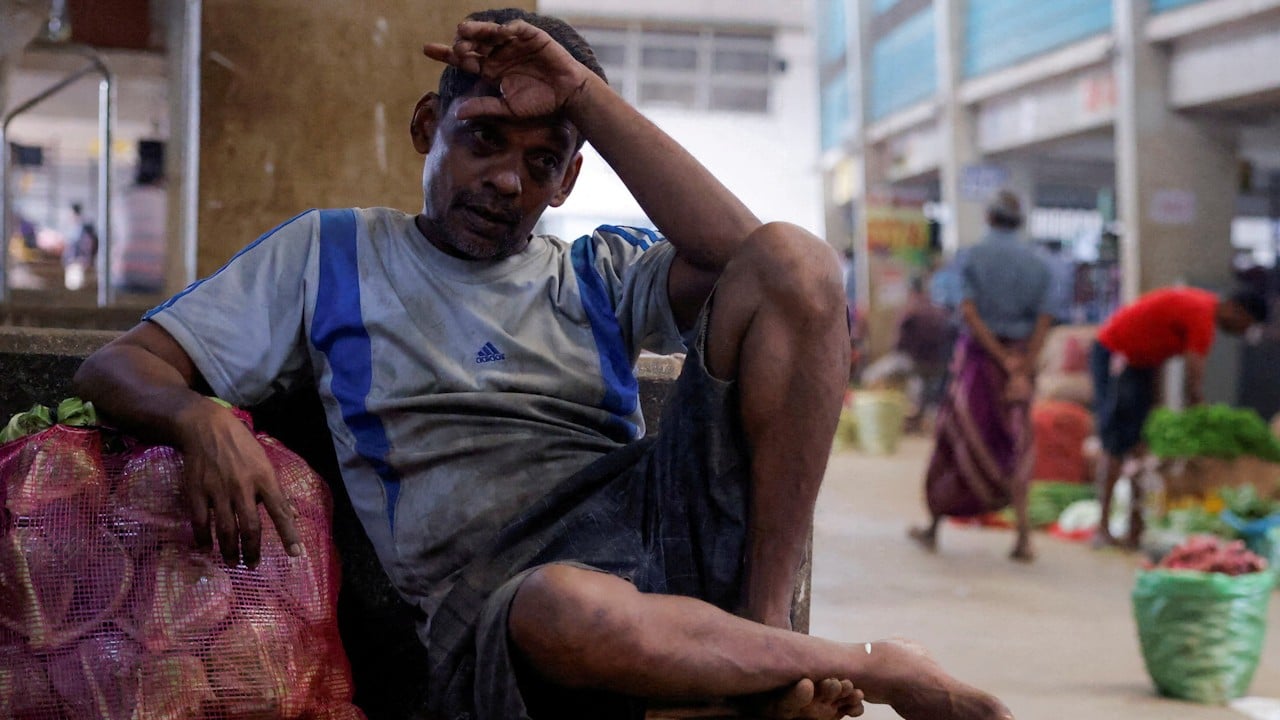
Sri Lanka seeks US$17 billion debt reduction by restructuring – President urges lawmakers to accept IMF proposal
- Parliament is having a 3-day debate on President Ranil Wickremesinghe’s proposal to accept the IMF programme
- If approved, the plan would dictate how Sri Lanka’s crisis-stricken economy will be managed in the coming years
Sri Lanka’s president urged lawmakers on Wednesday to approve a four-year International Monetary Fund programme to restructure the country’s US$17 billion in foreign debt.
Parliament began a three-day debate on Wednesday about President Ranil Wickremesinghe’s proposal to accept the IMF programme. It will be followed by a vote.
If approved, the plan would dictate how Sri Lanka’s crisis-stricken economy will be managed in the coming few years.
A majority of lawmakers are expected to accept the IMF’s four-year bailout programme. Under the plan, the international development lender will provide nearly US$3 billion in stages.
Sri Lanka announced last year that it was suspending repayment of its foreign loans because of a severe foreign currency crisis resulting from the impact of the Covid-19 pandemic and efforts by the central bank to stabilise the Sri Lankan rupee by using scarce foreign reserves.
Wickremesinghe said at the time he took over as president last July, the country’s total debt, including both domestic borrowing and foreign was US$83.6 billion.
Wickremesinghe said negotiations on restructuring Sri Lanka’s foreign debt will be held with neighbouring India and the Paris Club, a group of major creditor nations on one platform, and separately with China.
Debt restructuring can take various forms including bailouts, renegotiating terms of loans and writing off or reducing the amount owed for some loans.
Sri Lanka also needs to restructure its domestic debt. Wickremesinghe said the government would safeguard local banks and employee provident funds it has borrowed from if need be.
Once a decision is made on the IMF plan, discussions can begin on a 25-year economic policy road map, he said.
Sri Lanka’s economic crisis – the worst in memory – caused severe shortages of food, medicine, fuel, cooking gas and electricity last year. That led to massive street protests that forced then-President Gotabaya Rajapaksa to flee the country and resign.
The economy has shown signs of improvement since Wickremesinghe took over as president last July. Shortages have been alleviated, power cuts have ended and the Sri Lankan rupee has begun to strengthen.


